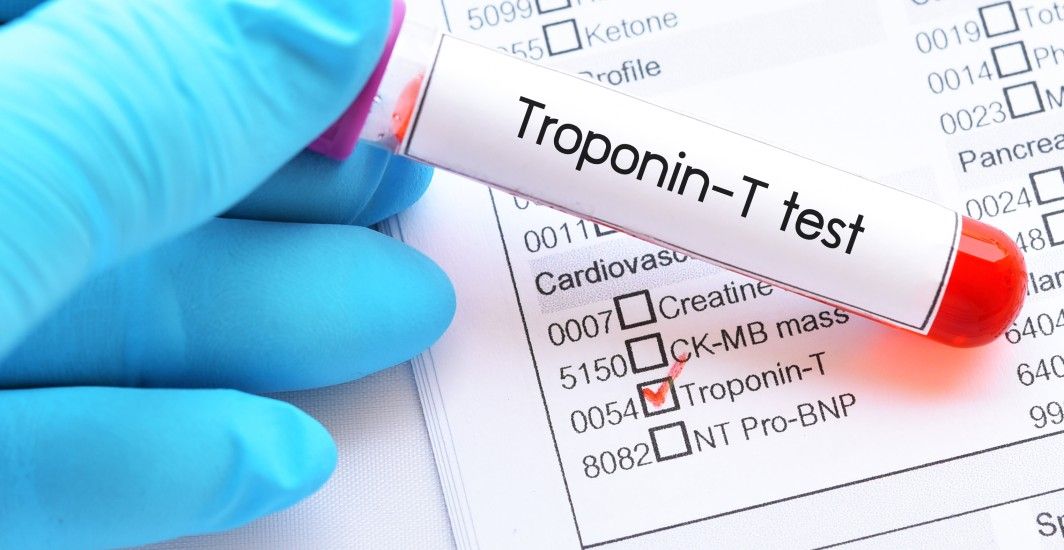General Health
Why ESR is High in Females? Causes of Elevated ESR in Women Explained
8 min read
By Apollo pharmacy ,Published On - 25 February 2025
Share this article
0
0 like
.jpg?tr=q-80)
If your doctor has told you that your ESR (Erythrocyte Sedimentation Rate) is high, you may be wondering what it means. ESR is a blood test that measures inflammation in your body. A higher-than-normal ESR can indicate infections, autoimmune conditions, or other underlying health concerns.
ESR helps doctors understand whether your body is experiencing inflammation. It does not diagnose a specific condition, but it provides valuable clues. Women naturally have higher ESR levels than men due to hormonal changes, pregnancy, and menstrual cycles. Other factors, like anaemia, obesity, or certain medications, can also raise ESR levels. If your ESR is slightly elevated, it may not always indicate a serious problem, but it is essential to discuss the results with your doctor to understand what they mean for your health.
This article will help you understand why ESR is often high in women and what it may indicate about your health.
What is ESR?
ESR, or Erythrocyte Sedimentation Rate, is a test that helps detect inflammation in your body. It does not pinpoint a specific disease but provides clues about underlying health conditions that may need further investigation.
ESR measures how quickly red blood cells settle at the bottom of a test tube over one hour. If you have inflammation in your body, proteins in your blood cause red blood cells to clump together and settle faster, leading to a higher ESR reading.
Normal ESR Range in Women vs. Men
Your ESR level depends on several factors, including age, gender, and overall health. Women naturally tend to have higher ESR levels than men due to hormonal changes, menstrual cycles, and pregnancy.
- Normal ESR range for women: 0–20 mm/hr
- Normal ESR range for men: 0–15 mm/hr
During pregnancy or after menopause, your ESR levels may rise slightly, but this is usually not a cause for concern unless accompanied by symptoms.
Role of ESR in Diagnosing Health Conditions
Doctors use ESR tests to detect inflammation that may indicate infections, autoimmune diseases, or chronic inflammatory disorders. If your ESR is elevated, it may be a sign of conditions like rheumatoid arthritis, lupus, or tuberculosis. However, ESR alone is not enough for a diagnosis. Your doctor will consider your symptoms, medical history, and additional tests before determining the next steps.
Why ESR is High in Females?
Women naturally tend to have higher ESR readings due to biological and hormonal differences. Your age, hormones, and physiological changes all play a role in how your body responds to inflammation, affecting your ESR levels. These are some of the reasons why ESR is high in females:
1. Physiological Factors
Several biological differences contribute to higher ESR levels in women. Women generally have lower red blood cell counts than men, which causes red blood cells to settle faster during the test. Additionally, factors like pregnancy, menopause, and immune system variations affect how the body regulates inflammation. Since inflammation influences ESR, these differences contribute to naturally higher readings in women.
2. Hormonal Influence on ESR Levels
Your hormones fluctuate throughout your life, affecting ESR levels. Oestrogen and progesterone, which regulate your menstrual cycle and pregnancy, influence inflammation markers in your blood. This is why ESR may be slightly elevated during menstruation, pregnancy, and hormone therapy. If you are pregnant, your ESR levels may rise significantly, but this is typically not a cause for concern unless accompanied by other symptoms.
3. Age-Related Changes in ESR
As you age, your ESR levels may naturally increase. This is due to changes in immune function, metabolism, and red blood cell production. Postmenopausal women often experience higher ESR levels, even without inflammation-related conditions.
Common Medical Conditions That Cause High ESR in Women
While some fluctuations are normal, persistent high ESR levels often point to infections, chronic inflammation, or other medical conditions. Identifying the cause helps doctors determine the right treatment approach.
1. Infections and Inflammatory Diseases
Your body’s immune response to infections and chronic inflammatory diseases can significantly raise ESR levels. Conditions that commonly cause high ESR include
- Bacterial and viral infections such as tuberculosis and pneumonia
- Autoimmune diseases like rheumatoid arthritis and lupus
- Chronic inflammatory disorders such as inflammatory bowel disease (IBD)
2. Anaemia and Blood Disorders
If you have anaemia, your ESR levels may be higher than normal. Women are more prone to anaemia due to menstrual blood loss and pregnancy-related iron deficiency. Other blood disorders like multiple myeloma or sickle cell disease can also affect ESR levels. Since red blood cell count influences ESR, lower haemoglobin levels result in faster sedimentation, leading to higher ESR readings.
3. Kidney and Liver Conditions
If your kidneys or liver are not functioning properly, it can lead to increased inflammation and a rise in ESR. Common conditions that contribute to high ESR include
4.Chronic kidney disease
- Liver diseases like hepatitis or cirrhosis
- Nephrotic syndrome
- If you have swelling, fatigue, or unexplained weight loss, kidney or liver function tests may be necessary.
4. Cancer and Malignancies
Certain cancers can cause persistently high ESR levels. Cancers affecting the blood, lymphatic system, or organs may produce chronic inflammation, raising ESR as a result. Common malignancies linked to elevated ESR include
- Lymphoma and leukaemia
- Breast and ovarian cancer
- Bone marrow disorders
While high ESR alone does not confirm cancer, if you have additional symptoms like unexplained weight loss, persistent fatigue, or night sweats, further tests are needed to rule out serious conditions.
Lifestyle and External Factors Contributing to High ESR
Factors such as diet, physical activity, smoking, alcohol intake, and stress can contribute to elevated ESR, even if no underlying medical condition is present. Making small but consistent changes can help you maintain balanced ESR levels and improve overall health.
1. Obesity and Sedentary Lifestyle
If you lead an inactive lifestyle or have excess weight, your body may produce higher levels of inflammatory markers, including ESR. Obesity is linked to chronic low-grade inflammation, which affects metabolism and immune function. Lack of exercise further slows down circulation, reducing your body’s ability to regulate inflammation.
2. Diet and Nutritional Deficiencies
What you eat affects your body’s inflammation levels. Diets high in processed foods, refined sugars, and unhealthy fats can contribute to chronic inflammation, leading to increased ESR. If you are deficient in key nutrients like iron, vitamin D, or omega-3 fatty acids, your body may struggle to regulate inflammation effectively
3. Smoking, Alcohol, and Their Effects on Inflammation
If you smoke or consume alcohol frequently, your body may experience higher levels of inflammation. Smoking damages blood vessels and reduces oxygen supply, increasing the risk of inflammatory conditions. Alcohol consumption, especially in excess, can disrupt immune function and liver health, leading to increased ESR and systemic inflammation.
4. Stress and Chronic Fatigue
If you experience chronic stress or exhaustion, your body produces more cortisol, a hormone that triggers inflammation. Over time, high-stress levels can lead to immune system imbalances, contributing to elevated ESR and other inflammatory markers.
When to See a Doctor?
If you experience persistent symptoms or a significant rise in ESR, consulting a doctor is essential. A high ESR is often a sign of underlying inflammation, infection, or chronic disease that requires further investigation.
You should seek medical advice if you notice any of the following symptoms along with a high ESR:
- Persistent fever, fatigue, or unexplained weight loss
- Joint pain, swelling, or stiffness that does not improve
- Severe headaches, vision problems, or dizziness
- Shortness of breath, chest pain, or persistent coughing
- Long-term digestive issues, such as bloating or abdominal pain
Diagnosis and Treatment of High ESR in Women
If your ESR levels are high, your doctor will investigate further to determine the underlying cause. While an elevated ESR alone does not confirm a disease, additional tests and lifestyle changes can help manage inflammation and improve overall health.
1. Medical Tests for Further Evaluation
Your doctor may recommend additional tests such as
- C-reactive protein (CRP) test to measure inflammation levels
- Complete blood count (CBC) to check for infections or anaemia
- Autoimmune tests like ANA or rheumatoid factor (RF) for conditions like lupus or arthritis
- Liver and kidney function tests to rule out organ-related issues
- Imaging scans such as X-rays or MRIs for detecting chronic inflammation
2. Treatment Options Based on Underlying Causes
If your high ESR is linked to a specific medical condition, your doctor will focus on treating the root cause. Common approaches include
- Antibiotics for bacterial infections
- Anti-inflammatory medications for arthritis and autoimmune conditions
- Lifestyle modifications to manage chronic diseases like diabetes
- Specialised treatment plans for kidney or liver disorders
3. Lifestyle Changes to Naturally Reduce ESR
- Making small but consistent lifestyle changes can help lower ESR and improve overall health. You can
- Maintain a balanced diet rich in anti-inflammatory foods like leafy greens and nuts
- Stay physically active with regular exercise to boost circulation
- Reduce stress through meditation, yoga, or deep breathing techniques
- Avoid processed foods and refined sugars that trigger inflammation
4. Medications and Supplements That May Help
- Your doctor may suggest medications or supplements to manage inflammation. These may include
- Nonsteroidal anti-inflammatory drugs (NSAIDs) to reduce inflammation
- Omega-3 fatty acid supplements for their anti-inflammatory benefits
- Vitamin D and iron supplements if deficiencies contribute to elevated ESR
- Herbal remedies like turmeric or ginger, which have natural anti-inflammatory properties
Before taking any supplements or medications, consult your doctor to ensure they are suitable for your health condition.
Conclusion
If your ESR levels are high, it is important to understand that this test alone does not diagnose a specific disease. Instead, it serves as an indicator of inflammation in your body, which may result from infections, autoimmune diseases, hormonal changes, or lifestyle factors. Women naturally have higher ESR levels than men due to biological differences, including pregnancy, menstrual cycles, and menopause. While mild elevations are often harmless, consistently high ESR may require further evaluation to rule out any underlying health conditions
General Health
Leave Comment
Recommended for you

General Health
Troponin Test: A Test To Rule Out Heart Damage
Worried about chest pain or breathlessness? Learn how the Troponin Test detects heart muscle damage, helps diagnose heart attacks, and guides urgent cardiac care.
.jpg?tr=q-80)
General Health
ABC Juice Benefits: Why This Vitamin-Packed Juice Is Great for Overall Wellness?

General Health
The Science Behind the Twitching of Eyes
Eye twitching usually occurs due to stress, consumption of excess caffeine or alcohol, exposure to pollution, the intake of some medicines, etc. but can sometimes indicate an underlying condition.
Subscribe
Sign up for our free Health Library Daily Newsletter
Get doctor-approved health tips, news, and more.
Visual Stories

Science-backed Home Remedies for Burns and Blisters
Tap to continue exploring
Recommended for you

General Health
Troponin Test: A Test To Rule Out Heart Damage
Worried about chest pain or breathlessness? Learn how the Troponin Test detects heart muscle damage, helps diagnose heart attacks, and guides urgent cardiac care.
.jpg?tr=q-80)
General Health
ABC Juice Benefits: Why This Vitamin-Packed Juice Is Great for Overall Wellness?

General Health
The Science Behind the Twitching of Eyes
Eye twitching usually occurs due to stress, consumption of excess caffeine or alcohol, exposure to pollution, the intake of some medicines, etc. but can sometimes indicate an underlying condition.